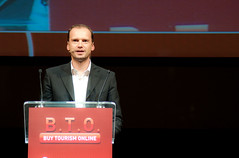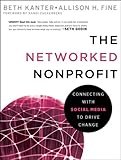Social Network Marketing – The Future of Consumer-Brand Relations
Do you have a social network marketing strategy?
Let’s go a bit off-board and get psychological. What did you do today? Well, you woke up, you went to work, as everyone has been doing for however many years we’ve been doing that now – you flirted at the water cooler. And you know what else you did? Dare I say, did proudly? For the nth time, you checked your Facebook, and you tweeted some, and you emailed some more. And probably all on your iPhone, you unashamedly modern person.
What has changed now then? The answer? We’ve all changed. Consumers have grown up. And what is the seat of this shift in consumer politics? Digital communication of course such as email.
Email accounts today are the digital fortresses of our ego: it is from our email we reach out and, after the single quick search engine-scavange, contact whoever we damn please. ‘Things used to be simple’, says Alan Duncan, marketing director of Sony. ‘You launch a product and then you let it go’. So much cannot be said for the times today, lest you get relentlessly googled, emailed, and had bad word-of-mouth spread about you like — well, whatever bad word of mouth gets spread around like. Brands, having just wiped the sweat from their brow after wrestling with the tough generation X, and, later, generation Y, have very quickly realized that the world has again lurched; but this time, it has lurched with never-before-seen audacity.
And now the final invitation is extended and the truth is revealed. Welcome to the cybergens, the cyber generation: the latest in a long line of opponents to the marketing machine. But, ho – brands, a little uncharacteristically it seems, seem prepared this time – an effective weapon have they; one that specifically targets this ‘always-online’ new market. Indeed, a method with near-dangerous amounts of success: social network marketing.
Let us examine your usual web-browsing session. You check your RSS page, you check your email; you check your facebook, check your twitter; and, a mystery until very recently, you’re probably texting as well. Statistics on facebook dictate that 6 billion minutes a day is spent on facebooking. And that’s just facebooking.
This is it; congratulations, you are today’s brand new consumer (with yes, the pun for once being intended), falling prey to the ubiquitous phenomenon of social network marketing. No – not fallen prey, but completely assimilated. Seamlessly integrating with everything ‘new-media’ you could possibly engage in, it indeed seems like the dawn of a new sleek, digi-horizon. And you don’t mind either. – But what about this newfangled method. Why.
A quick history lesson: in days of old, business worked differently. Brands were strict parents. We did what we were told and we took the veracity of such teachings absolutely for granted. The cane was still a teacher’s favourite at schools of old, and everyone meanwhile sauntered round in starchy shirts, half-muttering ‘yes… discipline and obedience. Good’.
Such was the way of old.
Such are the ways no longer.
Why not though? Well, of course the ‘why’ has a lot owed to the recent explosion of ‘Web 2.0’, the mischievous Youtubery; Google-mania, Facebook -mayhem (and, more recently), Twitterjabber. Tolstoy once famously said that war was the locomotive of change. Well, today, us all shiny and beardless, we may remark, apparently even cleverer then the old fellow could have hoped to be, that no: such is not the case. The warhorses of change are none other than the demons mentioned above. And we are the agents insidiously infected by all of it. The world, where it used to be as a product of complex calculations and compasses, lies now at our not-so proverbial fingertips. Brand best realise that we have become a digital people; social network marketing perfectly slots into our new digital ways.
And yes, yes, decry, panic, lament, etc. etc.; but the effect on the consumer-brand relation has seen unparalleled changes because of it. At Sony, ‘online marketing and our other marketing branches have no difference’. The world has instead morphed, becoming one big, thick, gloopy, cooking inbox, where all is on your screen; everything of any possible relevance to you is all neatly in one place. This is your world, and these are your profiles, your pages. You have no intention, by any means, of taking any of that fuzzy old nonsense of yesteryear. Newfangled is the new black. If those suits want your currency, then golly, they’re going to have to work damn hard for it.
Today identity about digitally portrayed image, and the life of the cybergen is lived in shameless shortcuts. The ‘one quick search’ approach has become common-place owing purely because of it’s convenience, with people being left dismayed and empty because of it.
Bad news again as our satisfaction recedes, perhaps, but good news in our change of sheer demand. The ripples of such an effect end up acutely felt on the respective brands duking it out for all your consumer’s digi-wallets. Responsibility shifts once more: brands are snorted at for expecting times of old – now they do their own ethical work; we make of it what we please. Well-known demonstrations of this change can be seen with for instance Marks and Spencer and their ‘Plan A’ pledges, or McDonalds’, and their blatant pandering to newly-savvy consumers with pictures of grass and cows all adorning the descriptions of their ‘healthy’ and / or ‘british’ ingredients.
With all this in mind then, the modern phenomenon of social network marketing is very quickly a phenomenon no longer. People are constantly blabbering, twittering, facebooking, youtubing, texting, googling, and it’s about time brands took advantage of it. It’s in their own interest – says Graham Sim, marketing director of HMV, ‘one-on-one engagement has the potential to be far more cost-effective and get better customer response than the [previous] scattergun mentality of the mass-market approach’.
Indeed, regarding its cost-effectiveness, social network marketing even reaches up to suits at the British Heart Foundation. Head of Communications, David Barker: ‘if you place something on a social network site it can be picked up around the world in seconds’. That’s certainly a lot faster then the brand’s themselves can manage. Not without some vague irony, suddenly the consumer’s newfound pride is completely reversed: in our sheer demand demand demand, we have ended up doing the dirty work ourselves – and the machine still functions perfectly efficiently, saving time and money on both sides.
According to Barker, ‘media today is driven by the here and now’. Social network marketing is not just shiny, sleek, and silver, and ‘young’. No longer is this exclusively the territory of brave new cutting cutting-edge business: it is a cheap, effective, and incredibly rapid mode of modern marketing which like it or not, effortlessly ties in with the digital madness making up much of our lives today. Once the strange unkempt billboard a few streets away, social network marketing has become, like it not, part of the wallpaper of modern-day life.
Paul Palmer is from the UK, he is a social networker, entrepreneur and web site optimisation specialist, specializing in SEO and social network marketing. Leave me a comment Id love to hear from you or visit my Internet Web Site Marketing blog.
Article from articlesbase.com
What You Need To Know About Network Marketing
This is exactly what the title indicates. Network marketing techniques that will save you time and money when you get started in network marketing. For those of you already in business, I also included 65 shock & awe marketing strategies.
What You Need To Know About Network Marketing
The Networked Nonprofit: Connecting with Social Media to Drive Change
- ISBN13: 9780470547977
- Condition: New
- Notes: BRAND NEW FROM PUBLISHER! BUY WITH CONFIDENCE, Over one million books sold! 98% Positive feedback. Compare our books, prices and service to the competition. 100% Satisfaction Guaranteed
The Networked Nonprofit Connecting with Social Media to Drive Change This groundbreaking book shows nonprofits a new way of operating in our increasingly connected world: a networked approach enabled by social technologies, where connections are leveraged to increase impact in effective ways that drive change for the betterment of our society and planet. “The Networked Nonprofit is a must-read for any nonprofit organization seeking innovative, creative techniques to improve their m
List Price: $ 34.95
Price: $ 18.72
Question by Christine M: What are the laws/requirements to operate a US based social network site or game site internationally?
I am fact checking. What are the legal requirements for a US based company that offers social network and games sites and expands into international markets. Meaning, is the company required to register in each company it expands to, or, does it only pay US taxes and follow US laws since that is where it is based. Note: the site charges a user fee.
Internet QUESTION
Best answer:
Answer by mel
if u go to europe, it depends on the individual europen country and some EU regs.
if in Asia – its still less regulated.
some countries dont have double taxation laws. but usa has it. so the profits u make in other countries are still taxable.
if u open a separate entity say, in HK, singapore, then u have to abide by their rules and pay their taxes but not usa.
many countries have double taxation rules with usa. u got to check with the treasury but u will be sent fr pillar to post. best to get an international finance lawyer
Give your answer to this question below!



